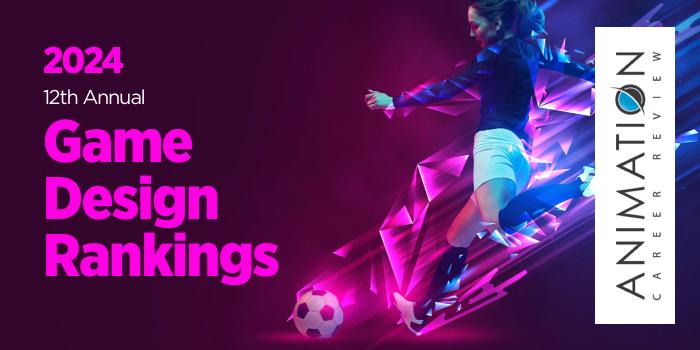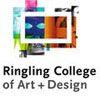Ringling College of Art and Design (RCAD) is the only institution in Florida dedicated exclusively to teaching art and design. For students interested in careers in the game design industry, the school has two options: the Game Art BFA and the Virtual Reality Development BFA. Both programs attract recruiters from major studios such as Blizzard Entertainment, Epic Games, Riot Games, and Bungie.
The Game Art BFA at RCAD follows the studio model of teaching, which emphasizes learning by doing. Students in this 120-credit hour program will work on projects in teams to develop technical, collaboration, and communication skills. Students will create works in state-of-the-art facilities equipped with the latest software used by AAA and indie studios. Game Art facilities feature Houdini, Unreal Engine, Zbrush, Maya, and Adobe Substance Suite, among others.
Other program benefits include participation in the Game Developers Conference (GDC) in San Francisco; industry critiques by successful visiting artists; and access to RCAD’s experiential learning initiative—INDEX. This program provides opportunities to gain hands-on industry experience working on real world projects with real world clients. INDEX activities take place in the classroom, the Design Center, Studio Labs, ART Network, the Maker Space, and through client competitions, immersive experiences, internships, elective courses, and volunteering.
Of the 120 credit hours required to complete the Game Art BFA, 48 are in the major. Course examples include 2D and 3D Design; Programming for Artists; Visual Development for Games I-II; 3D for Games I-IV; Game Design I-III; Digital Painting for Game Art; and Color and Perspective Drawing.
The Game Art BFA culminates with the Game Thesis Project completed across four courses including Game Thesis Preproduction; Game Thesis Project 1A; Game Thesis Project 1B; and Game Thesis Project II. The Thesis totals 15 credit hours.
The Virtual Reality Development BFA at Ringling College of Art and Design provides the same access and benefits as the Game Art BFA. This 120-credit hour program focuses on the design, creation, and analyzing of immersive experiences. This includes utilizing game engine technology in the creation of immersive experiences; navigating the production pipeline for 3D VR; utilizing specific software for creating 3D databases; mastering story structures; and innovating VR ideas.
Students will also develop collaboration and communication skills, as well as advanced knowledge of professional practices. Of the 120 credit hours for the Virtual Reality Development program, 51 credits are dedicated to the major. Course examples include 2D and 3D Design; Concept Development for Virtual Worlds; Immersive Media Design I-IV; 3D Technical Art; Visual Scripting; and Programming for Immersive Media.
General electives, Art and Design History electives, and open electives allow students to enhance the degree by specializing in an area of interest. Students may select six credit hours of general electives; 12 in Art and Design History; and 12 credit hours of open electives.
The Virtual Reality Development program at RCAD culminates with the VR Thesis/Capstone, completed across three courses including VR Thesis Preproduction; VR Capstone Project I; and VR Capstone Project II. This culminating experience totals 15 credit hours.
Graduates of the Game Art and Virtual Reality Development programs at Ringling College of Art and Design are prepared for careers in game art, design, development, and programming; virtual reality design, development, and programming; and user interface/user experience (UI/UX) design; architecture; military and law enforcement; education and training; advertising and marketing; art and design; healthcare and fitness; sports; tourism and travel; wellness; and automotive.
RCAD Game Art graduates have been hired at major companies and studios such as Electronic Arts (EA), Blizzard Entertainment, Rockstar Games, Microsoft, Riot Games, Hasbro, Epic Games, Netflix, Bethesda, Naughty Dog, and Meta.
Virtual Reality Development graduates have the opportunity to work at places such as Epic Games, Microsoft, General Motors, Kinetic Vision, 3D Forensic, Meta, Halon Entertainment, Vu Studios, Immersive Health Group, AECOM, Boabab Studios; ILMxLAB; Mote Marine Labs; and Funomena.
Ringling College of Art and Design is a private, not-for-profit college accredited by the National Association of Schools of Art and Design (NASAD) and the Southern Association of Colleges and Schools Commission on Colleges (SACSCOC). Founded in 1931 by Dr. Ludd M. Spivey (then president of Southern College) and circus baron John Ringling, RCAD serves approximately 1,700 students enrolled in 11 different majors leading to a BFA degree, two majors leading to a BA, and minor options in 10 areas.







